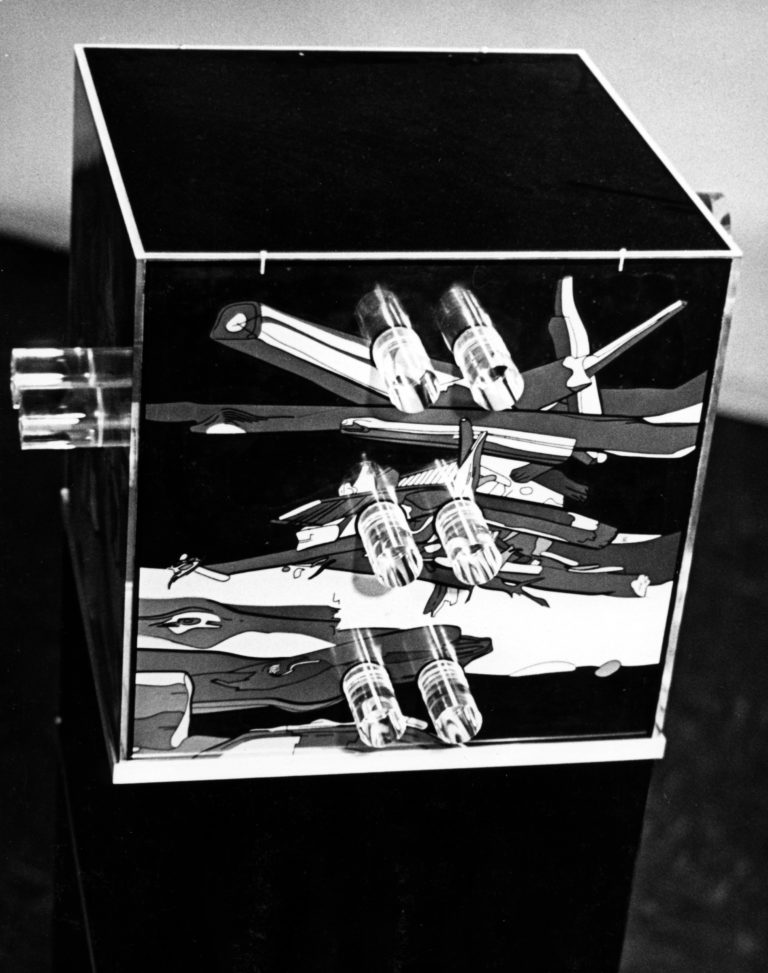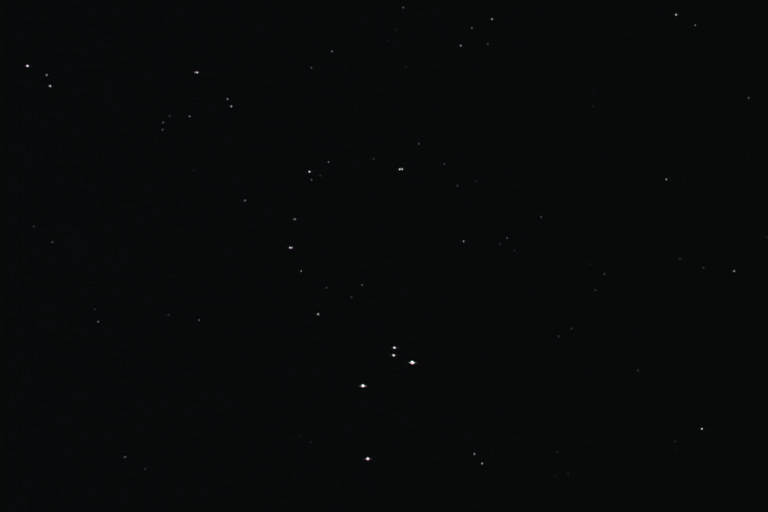16 May 2008 – 10 August 2008
Morris and Helen Belkin Art Gallery
Idyll: Three Exhibitions
-
Joan Balzar
Artist -
Claude Breeze
Artist -
Audrey Capel Doray
Artist -
Julia Cseko
Artist -
Brian Fisher
Artist -
Noam Gonick
Artist -
Gary Lee-Nova
Artist -
Michael Morris
ArtistMichael Morris (1942-2022) was a painter, photographer, video and performance artist and curator. His work is often media based and collaborative, involved with developing networks and in the production and presentation of new art activity. In his roles as curator and, primarily, as an artist, Morris was a key figure of the West Coast art scene during the 1960s. Morris studied at the University of Victoria and then at the Vancouver School of Art (now Emily Carr University), followed by graduate studies at Slade School of Fine Art at the University College London, during the 1960s. There he became interested in the work of Fluxus and the European avant-garde, which had a profound influence on his work and on the Vancouver experimental art scene in general. In 1969 he founded Image Bank with Vincent Trasov, a system of postal correspondence between participating artists for the exchange of information and ideas. The intention of Image Bank was to create a collaborative, process-based project in the hopes of engendering a shared creative consciousness—in opposition to the alienation endemic to modern capitalist society—through the deconstruction and recombination of its ideological forms. Morris was acting curator of the Vancouver Art Gallery and the Centre for Communications and the Arts at Simon Fraser University and has had many guest curatorships at other institutions. In 1973, he co-founded the Western Front—one of Canada’s first artist-run centres—and served as co-director for seven years. In 1990 he and Trasov founded the Morris/Trasov Archive, housed at the Morris and Helen Belkin Art Gallery, to research contemporary art. He has established a strong international reputation and worked for many years in Berlin. Morris has participated in artist-in-residence programs both in Canada at the Banff Centre (1990) and at Open Studio (2003) and internationally at Berlin Kustlerprogramm (1981-1998). Morris has had numerous solo and collaborative exhibitions nationally and internationally, and is the recipient of numerous awards, including the 2015 Audain Prize for Lifetime Achievement in Visual Arts, the 2011 Governor General’s Award in Visual and Media Arts and an Honorary Doctorate in 2005 by Emily Carr University of Art + Design.
Read More
-
Gordon Payne
Artist -
Richard Turner
Artist -
Holly Ward
Artist -
Judy Williams
Artist -
Jack Wise
Artist -
Scott Watson
CuratorScott Watson (Canadian, b. 1950) is Director Emeritus and Research Fellow at the Morris and Helen Belkin Art Gallery, University of British Columbia. A curator whose career has spanned more than thirty-five years, Watson is internationally recognized for his research and work in curatorial and exhibition studies, contemporary art and issues, and art theory and criticism. His distinctions include the Hnatyshyn Foundation Award for Curatorial Excellence in Contemporary Art (2010); the Alvin Balkind Award for Creative Curatorship in BC Arts (2008) and the UBC Dorothy Somerset Award for Performance Development in the Visual and Performing Arts (2005). Watson has published extensively in the areas of contemporary Canadian and international art. His 1990 monograph on Jack Shadbolt earned the Hubert Evans Non-Fiction Prize in 1991. Recent publications include Letters: Michael Morris and Concrete Poetry (2015); Thrown: British Columbia’s Apprentices of Bernard Leach and their Contemporaries (2011), a finalist for the 2012 Roderick Haig-Brown Regional Prize; “Race, Wilderness, Territory and the Origins of the Modern Canadian Landscape” and “Disfigured Nature” (in Beyond Wilderness, McGill University Press, 2007); and “Transmission Difficulties: Vancouver Painting in the 1960s” (in Paint, Vancouver Art Gallery, 2006).
Read More
On the 40th anniversary of May 1968, the Belkin Art Gallery presents three exhibitions that address aspects of that revolutionary decade. Audrey Capel Doray was a pioneer in multimedia, interactive and digitally based art when she produced Wheel of Fortune in 1968 and Electronic Seascape in 1969. This exhibition will also include a selection of Doray’s paintings as well as a multimedia work called Pic-A-Mix by her late husband Victor Doray.
Wildflowers of Manitoba is a multimedia performance installation by Noam Gonick and Luis Jacob. The work was featured at the 2007 Montreal Biennale. It consists of four short films and sound presented in a furnished geodesic dome. The films show four young men living off the grid in a survivalist camp on the shores of Lake Winnipeg during the summer of 2006. The loosely scripted scenes establish a naturalist idyll seemingly removed from contemporary life.
Holly Ward’s 2005 work, called Radical Rupture, is an installation that incorporates a recording of a 1967 speech given by Herbert Marcuse in London, “On Liberation from the Affluent Society” as the sound track for a projection of an erratic starry night.

Audrey Capel Doray, Electronic Seascape, 1969.
Mixed media sculpture.

Noam Gonick and Luis Jacob. Wildflowers of Manitoba, 2007.
Video installation

Holly Ward, Radical Rupture, 2005.
Video installation.
-
Joan Balzar
Artist -
Claude Breeze
Artist -
Audrey Capel Doray
Artist -
Julia Cseko
Artist -
Brian Fisher
Artist -
Noam Gonick
Artist -
Gary Lee-Nova
Artist -
Michael Morris
ArtistMichael Morris (1942-2022) was a painter, photographer, video and performance artist and curator. His work is often media based and collaborative, involved with developing networks and in the production and presentation of new art activity. In his roles as curator and, primarily, as an artist, Morris was a key figure of the West Coast art scene during the 1960s. Morris studied at the University of Victoria and then at the Vancouver School of Art (now Emily Carr University), followed by graduate studies at Slade School of Fine Art at the University College London, during the 1960s. There he became interested in the work of Fluxus and the European avant-garde, which had a profound influence on his work and on the Vancouver experimental art scene in general. In 1969 he founded Image Bank with Vincent Trasov, a system of postal correspondence between participating artists for the exchange of information and ideas. The intention of Image Bank was to create a collaborative, process-based project in the hopes of engendering a shared creative consciousness—in opposition to the alienation endemic to modern capitalist society—through the deconstruction and recombination of its ideological forms. Morris was acting curator of the Vancouver Art Gallery and the Centre for Communications and the Arts at Simon Fraser University and has had many guest curatorships at other institutions. In 1973, he co-founded the Western Front—one of Canada’s first artist-run centres—and served as co-director for seven years. In 1990 he and Trasov founded the Morris/Trasov Archive, housed at the Morris and Helen Belkin Art Gallery, to research contemporary art. He has established a strong international reputation and worked for many years in Berlin. Morris has participated in artist-in-residence programs both in Canada at the Banff Centre (1990) and at Open Studio (2003) and internationally at Berlin Kustlerprogramm (1981-1998). Morris has had numerous solo and collaborative exhibitions nationally and internationally, and is the recipient of numerous awards, including the 2015 Audain Prize for Lifetime Achievement in Visual Arts, the 2011 Governor General’s Award in Visual and Media Arts and an Honorary Doctorate in 2005 by Emily Carr University of Art + Design.
Read More
-
Gordon Payne
Artist -
Richard Turner
Artist -
Holly Ward
Artist -
Judy Williams
Artist -
Jack Wise
Artist -
Scott Watson
CuratorScott Watson (Canadian, b. 1950) is Director Emeritus and Research Fellow at the Morris and Helen Belkin Art Gallery, University of British Columbia. A curator whose career has spanned more than thirty-five years, Watson is internationally recognized for his research and work in curatorial and exhibition studies, contemporary art and issues, and art theory and criticism. His distinctions include the Hnatyshyn Foundation Award for Curatorial Excellence in Contemporary Art (2010); the Alvin Balkind Award for Creative Curatorship in BC Arts (2008) and the UBC Dorothy Somerset Award for Performance Development in the Visual and Performing Arts (2005). Watson has published extensively in the areas of contemporary Canadian and international art. His 1990 monograph on Jack Shadbolt earned the Hubert Evans Non-Fiction Prize in 1991. Recent publications include Letters: Michael Morris and Concrete Poetry (2015); Thrown: British Columbia’s Apprentices of Bernard Leach and their Contemporaries (2011), a finalist for the 2012 Roderick Haig-Brown Regional Prize; “Race, Wilderness, Territory and the Origins of the Modern Canadian Landscape” and “Disfigured Nature” (in Beyond Wilderness, McGill University Press, 2007); and “Transmission Difficulties: Vancouver Painting in the 1960s” (in Paint, Vancouver Art Gallery, 2006).
Read More
Funders
-
Canada Council for the Arts